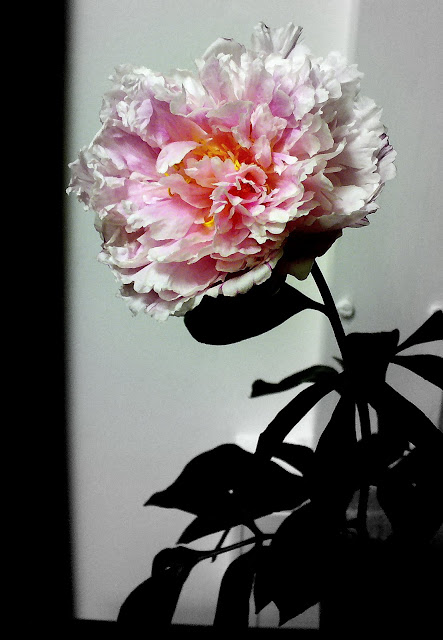"What has surprised me is that just because the blow has been so mortal, as if roughly, savagely, cutting me in half and leaving me with one leg and one arm only, I am with what seems to me total illogicality struggling frantically to survive... The life instinct must be much stronger than I know.Such passages are scattered through a book that is full of life and travel and sociability, keen awareness of local and global realities and lively description of people and places - and all more poignant for that, of course.
"...I think the impulse to write here is perhaps salutory, a first attempt to let up the terrifying, iron clamp which I have fastened on my thoughts."
"Why publish something so unbearably sad?, I may be asked. Because virtually all adults learn sooner or later that there is a great deal of sorrow in life, that it is interrupted by disasters and crushed by stresses; that death and bereavement come to everyone and have to be faced. But most also know that it is not all sad, that in its very essence lies something glorious and splendid, that the stuff it is made of arouses constant wonder and interest, that even when one cannot stop crying one must suddenly laugh."It is all the more poignant, too, for knowing that this woman who clearly - feeling half-alive in her bereavement - thought she might not survive her husband for long, was to live another 40 years and die in 2004 not long before her 104th birthday. Most poignant of all because the diary ends on a note of hope with the birth of her grandchild and I read it in the knowledge that a further, cruel and completely unexpected bereavement was to come, that her son collapsed and died, still in his twenties, when the baby was a few weeks old.
A terribly sad book. But also redemptive, for she lived those long years that were still to come after losing her husband and then her son, and lived them well, busy and well loved, published many literary translations (the work that kept her going through this sad time) and later many volumes of her diaries and became, as she outlived all the other members of the 'Bloomsbury Group', an increasing focus of interest and admiration.
Perhaps it isn't really her account of bereavement that I identify with at all. Perhaps it's more that what she experienced and wrote so well about after losing her beloved partner of thirty years was a particularly acute perception of what life is always like anyway, but a consuming relationship or activity may sit squarely in our central vision and obscure it. She saw, and convincingly conveyed, what Terrance Keenan also saw: we are always nadie, nobody, and it's always winter. But perhaps this is not quite as bad as we think, quite as bad as we fear.




















